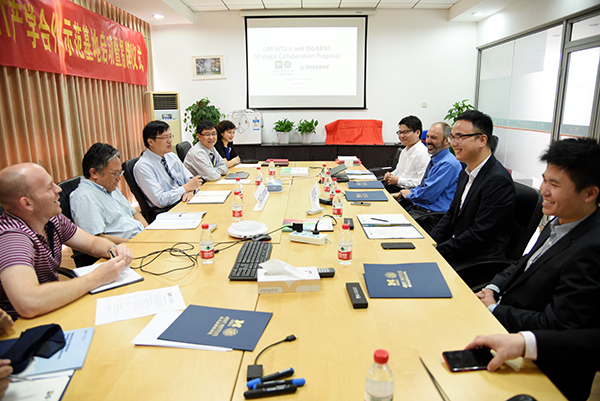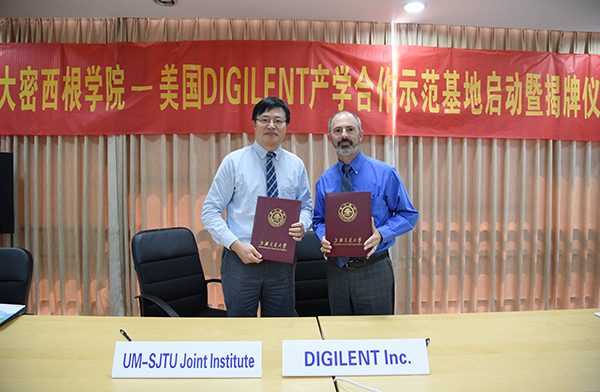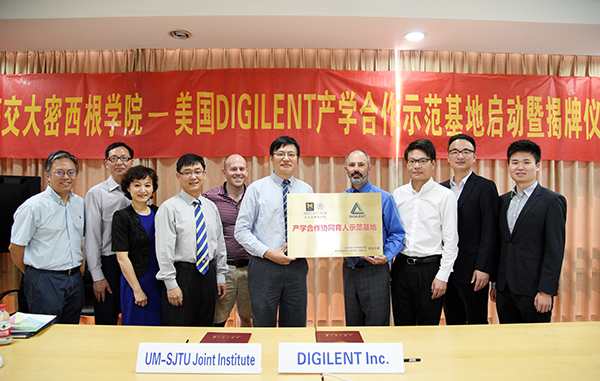On September 18th, the University of Michigan-Shanghai Jiao Tong University Joint Institute (UM-SJTU JI) and Digilent Inc., an American information technology company, signed a sponsorship agreement and launched the JI-Digilent industry-academy cooperation base. Digilent’s President Steve Johnson and Fucheng Li, General Manager of Greater China, attended the ceremony. They were joined by Dean Peisen Huang, Associate Dean Gang Zheng, and faculty and staff representatives from the Joint Institute.



Attendees witnessed the signing of a sponsorship and cooperation agreement by Steve Johnson and Peisen Huang at the ceremony. Peisen Huang then presented a certificate of appreciation to Steve Johnson. The JI-Digilent industry-academy co-operation base was then unveiled.
Dean Huang said that the establishment of the JI-Diligent base is the full implementation of the industry-academy cooperation and the important results of collaborative education. Further cooperation with Digilent is expected, by utilizing the advantages of both sides in training innovative engineers
After the ceremony, Fucheng Li briefly introduced Digilent’s main products and applications. The two sides then discussed about the base’s long-term planning and course offerings.
Introduction of the Digilent, Inc.
As a wholly owned subsidiary of National Instruments (NI), Digilent Inc. is a company with top designs and manufacturing in the field of FPGA (Field-programmable gate array), microprocessor technology, portable sensor modules and virtual instrument. Since its establishment in 2000, the company has provided electrical engineering research and teaching platforms, and solutions for more than 2,000 research institutions and universities in more than 70 countries. In China, the Digilent program is based on its own leading technology advantages and a deep understanding of the trend in innovative talent training. Each year, Digilent invests a wealth of resources to diversify its cooperation with national institutions in innovative training, including supporting teachers in professional and curriculum reform, building MOOC (Massive Open Online Courses), establishing joint laboratories, supporting students to complete innovation and entrepreneurship projects and participate in training and competitions; providing affordable hardware and software for entrepreneurs; building entrepreneurship space, student clubs, and many other initiatives to help the cooperative institutions achieve better teaching results; fully implementing the innovative talents training objectives, paving the way for the scientific research, and laying a solid foundation for training the next generation of innovative multidisciplinary engineers with global vision.





